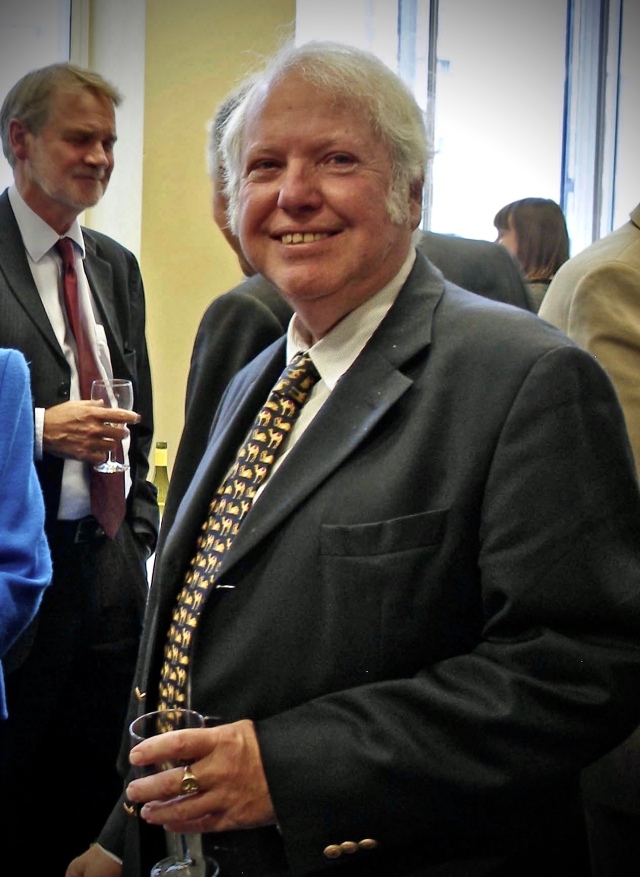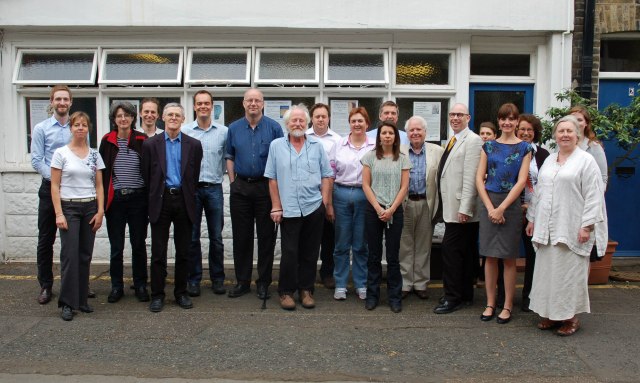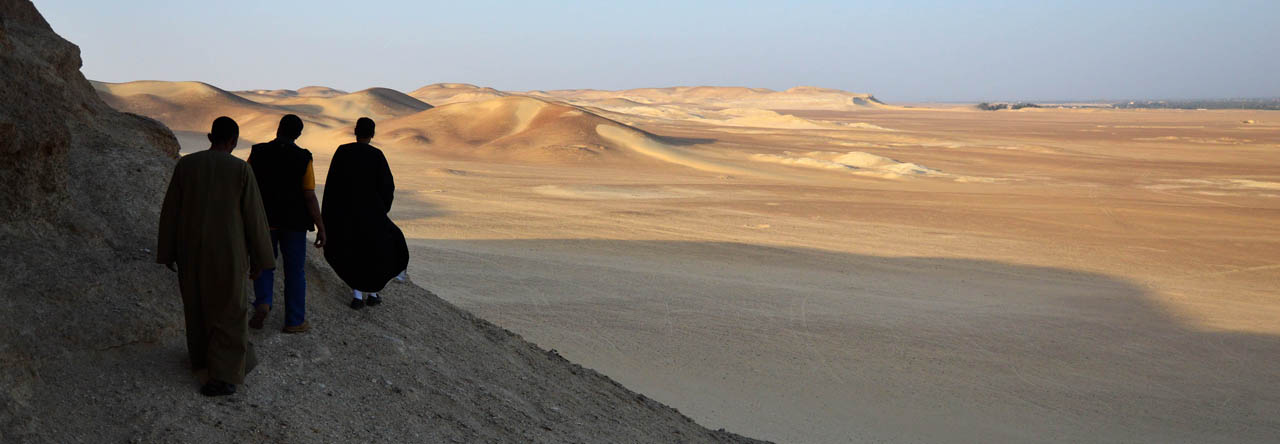Yesterday, I heard the very sad news that the Egyptologist George Hart had died. It’s always hard to lose a colleague but George was one of the nicest I have ever come across. I had no idea he was unwell, and I gather that he only received his diagnosis – of cancer, sadly – at the beginning of this month (Feb 2021). It’s a comfort to know that he wasn’t ill for long, but I am sure that he will be much missed by many people.

George Hart during a reception in the Department of Ancient Egypt and Sudan, The British Museum in 2011.
George had degrees in Egyptology but his contribution to the field was less to do with academic work and more with sharing his expertise with the wider public. I can hardly think of anyone who has contributed more to the subject in this way in the entire time I have been involved.
He was something of a hero of mine in fact. While I was still a student at the University of Birmingham (1996-2000) there was relatively little Egyptology online, and the few pages that existed were very usefully gathered together by the ‘Egyptology Resources on the Internet’ site. This included a short list of personal websites and George was among the very small number of Egyptologists with their own pages. Here I learned that he had a BA and MPhil – the degree I was studying for at the time – and worked at the British Museum, not in the Egyptian department however, but in Education. He was the Museum’s resident specialist in teaching Egyptology to the public, and having already had an inkling that this might where I might find my own niche, I decided his was a career path to aspire to!
Shortly after finishing that degree I got my first job, at the Egypt Exploration Society (EES), where I met George for the first time, and where I would encounter him on many occasions over the course of the next two decades. As EES librarian I came to know George’s books well and as I got to know ‘the scene’ I learnt that of all the enthusiasts I came across who had studied Egyptology – members of the EES or other groups around the country – many had been given their introduction to the subject by George, particularly those who had studied the ancient language – his hieroglyphs classes were eternally popular.

The EES staff, Trustees and Field Directors outside the Society’s offices on Doughty Mews in 2012. George is seventh from right in a light-coloured suit and blue-striped shirt.
I often attended meetings with George. He was a Trustee of the EES for many years and had been a member of the editorial board of the Society’s colour magazine Egyptian Archaeology from its inception (the first issue was published in 1990). He was editor of the book reviews section and in fact wrote most of the reviews himself for the first ten years or so of the magazine’s existence.
It was a pleasure to see George arriving at the Society’s offices on Doughty Mews. He always had a smile and was interested to know how we all were. He was generally a very friendly character, quiet, modest and apparently without any ego, but highly intelligent and sensible. He was certainly not someone who always felt he had to say something, but, equally, he wasn’t shy in speaking up when he thought he could say something useful, even if it meant going against the mood in the room. He was always positive and encouraging – now I think of it he barely had a bad word to say about anyone or anything – and a natural diplomat. I can well remember the sensitive way he handled a review of a well-known colleague’s autobiography, something none of the rest of us would write for fear of saying what we really thought!
He was principled too. I will never forget George taking a stand when he felt procedures in one particular meeting had fallen short of best practice, even though it meant going against the grain and potentially losing a few friends (although I doubt that happened in the event, George was too likeable).
In 2009 I asked him to teach hieroglyphs on weekday evenings at the Society which he did with typical enthusiasm even though by this time he surely had no need of such work. In more recent years I often bumped into him either in the airport or on the plane to Cairo, usually when we were both travelling out with groups of enthusiastic tourists. The last time I saw him was in mid-flight, when he came over to say ‘hello’ to Janet Shepherd of Ancient World Tours and me. He was charming as usual and asked about my next book which was to be Egyptologists’ Notebooks. He said he thought it was a great idea and that he was sure it would be excellent, but didn’t think the title was quite right(!).
I had asked him to read a draft of my previous book, Searching for the Lost Tombs of Egypt, which he did, refusing the expert reviewer’s fee, but providing umpteen useful comments and corrections, all delivered with sensitivity and all the usual (for him) encouragement. He wrote: “Of course I would be very happy to read the chapters of your forthcoming book – although I am sure that with your scholarship and talent any constructive input from me is likely to be minimal.” Of course, in the event, he provided many, extremely helpful notes. I wrote this for the acknowledgements:
“Very special thanks to George Hart who read a draft of the book when I was hurtling towards what turned out to be the final deadline, when much of it was still in a rather scruffy and unfinished state. He never complained, found gentle ways to point out all my silly mistakes, and always had something positive to say about each of the chapters as he went along. There are few people with George’s depth of knowledge, or his gift for communicating it to public audiences. This book is infinitely the better for both. Thanks George.”
He came to the launch of the book when it appeared in October 2018 and, delighted to see him but also full of nerves, I gave him a big hug. I’m glad I had the chance to do that but I’m really sorry I won’t get to see more of him. He was great.
RIP George.
UPDATE 20 May 2021: George’s contribution to education and Egyptology has, fittingly, been recognised in The Guardian, here.
